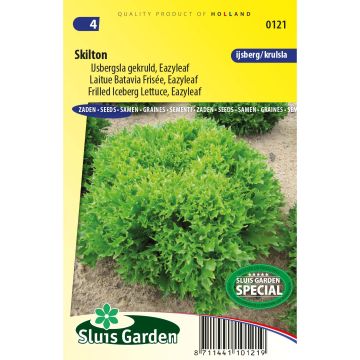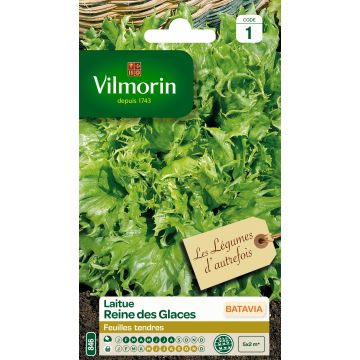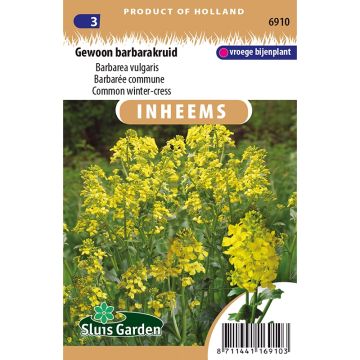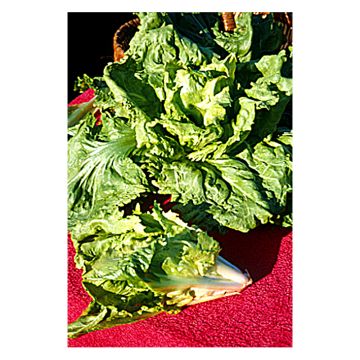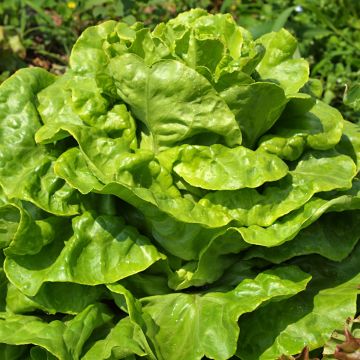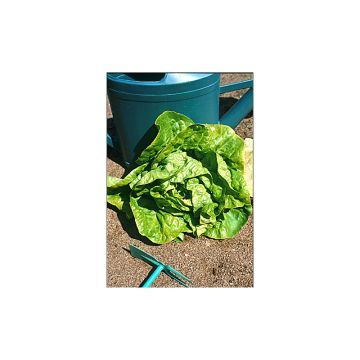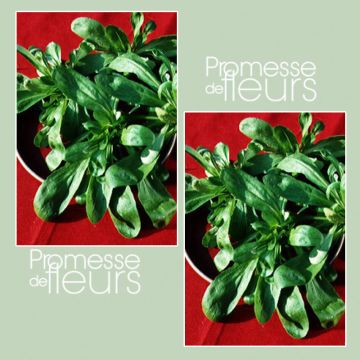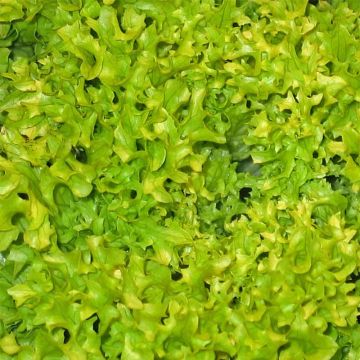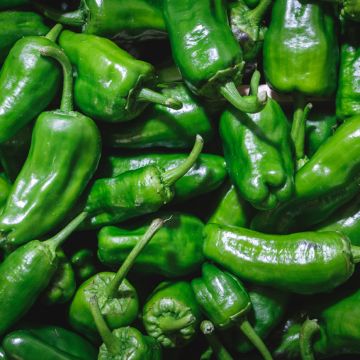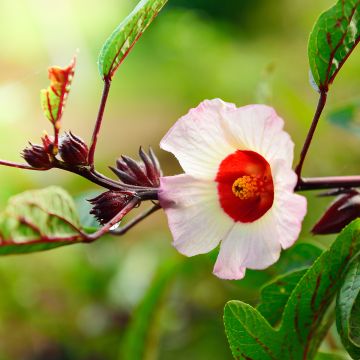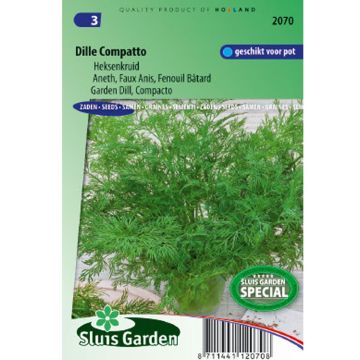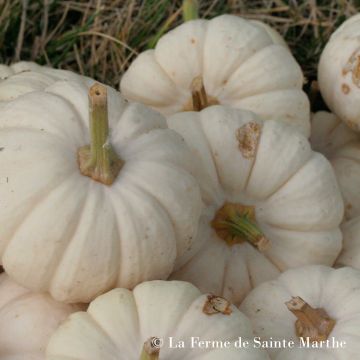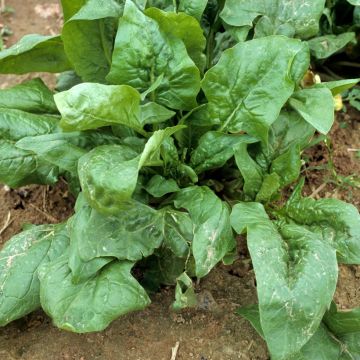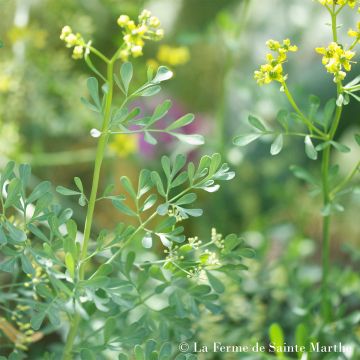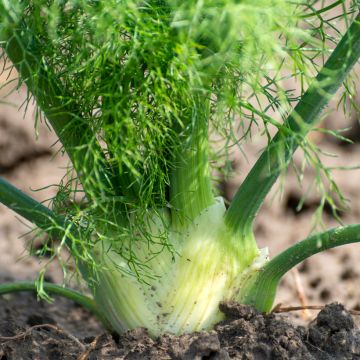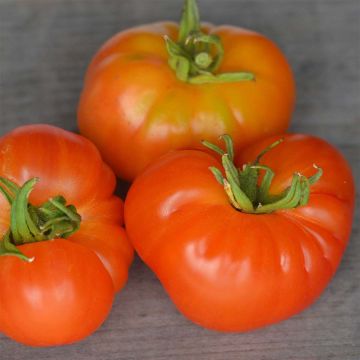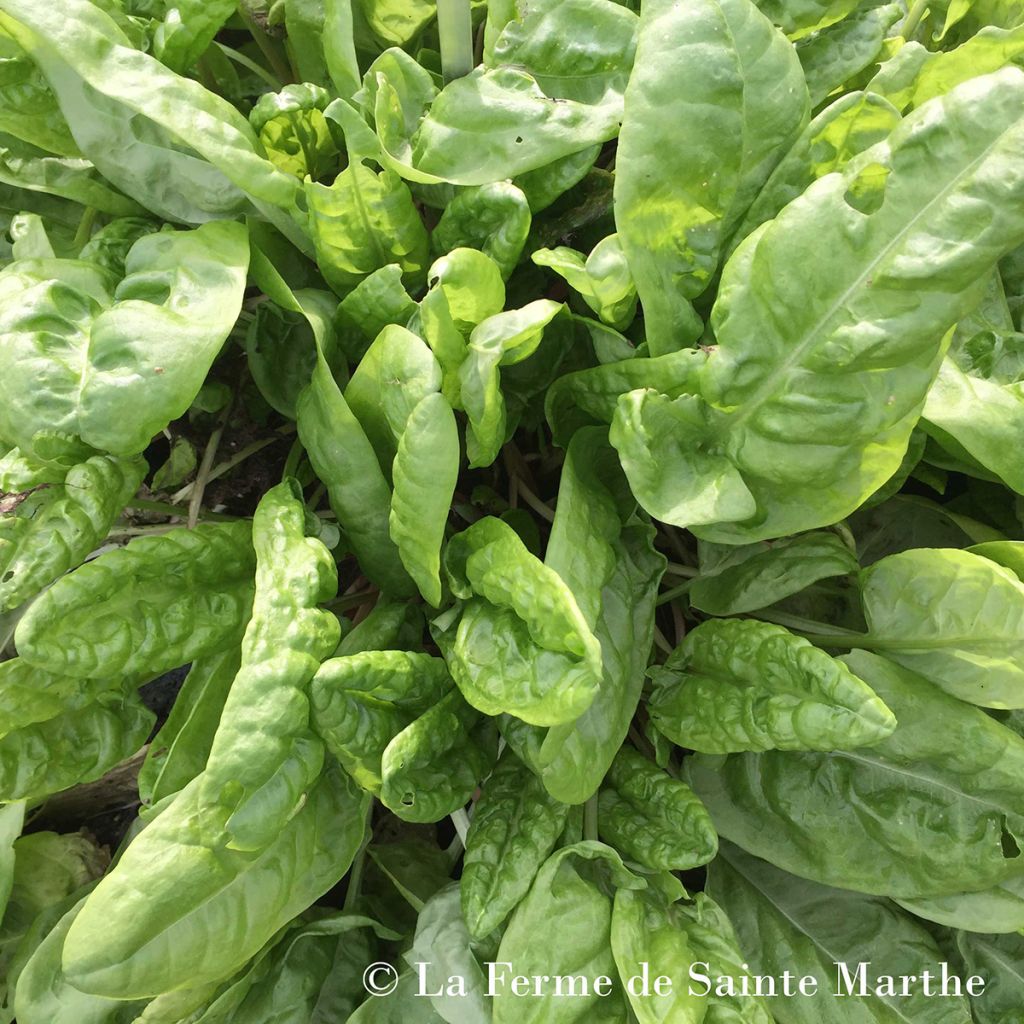

Oseille commune Bio - Ferme de Sainte Marthe
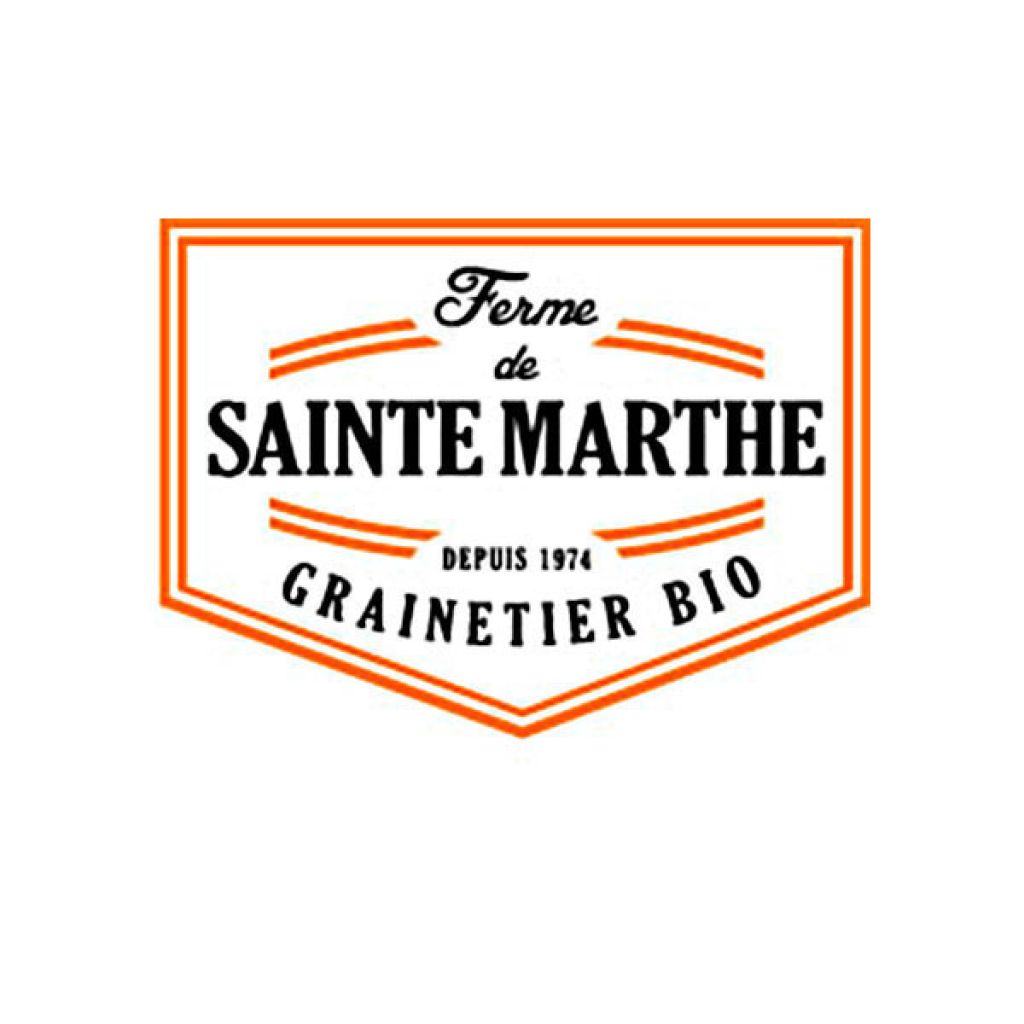

Oseille commune Bio - Ferme de Sainte Marthe
Organic Common Sorrel - Ferme de Sainte Marthe seeds
Rumex acetosa
Common sorrel, Garden sorrel, Sorrel
let the shoot grow
Nicolle T., 19/05/2018
Special offer!
Receive a €20 voucher for any order over €90 (excluding delivery costs, credit notes, and plastic-free options)!
1- Add your favorite plants to your cart.
2- Once you have reached €90, confirm your order (you can even choose the delivery date!).
3- As soon as your order is shipped, you will receive an email containing your voucher code, valid for 3 months (90 days).
Your voucher is unique and can only be used once, for any order with a minimum value of €20, excluding delivery costs.
Can be combined with other current offers, non-divisible and non-refundable.
Home or relay delivery (depending on size and destination)
Schedule delivery date,
and select date in basket
This plant carries a 6 months recovery warranty
More information
We guarantee the quality of our plants for a full growing cycle, and will replace at our expense any plant that fails to recover under normal climatic and planting conditions.

Description
Common Sorrel is a vegetable and condiment plant that can be consumed raw, to add a tangy note to salads, or cooked to flavour sauces and fish. It can be cultivated in the garden or on a balcony in a large pot. It is a perennial plant that can be sown from March to May for harvesting from May to August.
Common Sorrel, Rumex acetosa, is native to Europe and Asia. It belongs to the family Polygonaceae and naturally thrives in cool, rather heavy, and acidic soil. It has aromatic leaves, rich in vitamin C and beta-carotene, and can be prepared and cooked like spinach. When cooked, it adds a slightly tangy touch to fish, tarts, and soups. Its young and tender leaves can be consumed raw in salads.
Harvest: Sorrel is a perennial plant that can remain in place for several years. It can be harvested as needed, either in its juvenile stage or when fully mature. The harvest is done leaf by leaf, by hand or with a knife.
Storage: Sorrel should be consumed immediately after harvest as it does not keep well. However, it can be frozen after cooking.
Gardening tip: To reduce the need for watering, we recommend mulching the soil with thin successive layers of grass clippings, if possible mixed with dead leaves, starting from late May. This protection helps the soil retain moisture and also reduces weed growth.
Organic or "AB" seeds come from plants cultivated without the use of pesticides (insecticides, herbicides). These seeds also do not undergo any post-harvest treatment. They bear the AB label and are certified by Ecocert, an independent organization.
Report an error about the product description
Harvest
Plant habit
Foliage
Botanical data
Rumex
acetosa
Polygonaceae
Common sorrel, Garden sorrel, Sorrel
Cultivar or hybrid
Perennial
Other Salad leaf seeds
View all →Planting and care
Sowing:
Sowing is done in shade or partial shade, in moist, fertile and well-prepared soil.
Directly in the ground from March to May, trace furrows one centimetre deep, spaced 30 cm (12in) apart, and sow in rows by placing one seed every 3-4 centimetres (1-2 inches). When the plants are large enough to handle, thin them out and keep only one plant every 15 cm (6in) for harvesting as young shoots or every 30 cm (12in) for a fully ripe harvest.
Cultivation:
Remember to regularly water sorrel during dry periods to keep the soil moist. The young leaves of sorrel can be harvested 6 to 8 weeks after sowing. Regular harvesting stimulates the production of new leaves.
Seedlings
Care
Intended location
-
, onOrder confirmed
Reply from on Promesse de fleurs
Similar products
Haven't found what you were looking for?
Hardiness is the lowest winter temperature a plant can endure without suffering serious damage or even dying. However, hardiness is affected by location (a sheltered area, such as a patio), protection (winter cover) and soil type (hardiness is improved by well-drained soil).

Photo Sharing Terms & Conditions
In order to encourage gardeners to interact and share their experiences, Promesse de fleurs offers various media enabling content to be uploaded onto its Site - in particular via the ‘Photo sharing’ module.
The User agrees to refrain from:
- Posting any content that is illegal, prejudicial, insulting, racist, inciteful to hatred, revisionist, contrary to public decency, that infringes on privacy or on the privacy rights of third parties, in particular the publicity rights of persons and goods, intellectual property rights, or the right to privacy.
- Submitting content on behalf of a third party;
- Impersonate the identity of a third party and/or publish any personal information about a third party;
In general, the User undertakes to refrain from any unethical behaviour.
All Content (in particular text, comments, files, images, photos, videos, creative works, etc.), which may be subject to property or intellectual property rights, image or other private rights, shall remain the property of the User, subject to the limited rights granted by the terms of the licence granted by Promesse de fleurs as stated below. Users are at liberty to publish or not to publish such Content on the Site, notably via the ‘Photo Sharing’ facility, and accept that this Content shall be made public and freely accessible, notably on the Internet.
Users further acknowledge, undertake to have ,and guarantee that they hold all necessary rights and permissions to publish such material on the Site, in particular with regard to the legislation in force pertaining to any privacy, property, intellectual property, image, or contractual rights, or rights of any other nature. By publishing such Content on the Site, Users acknowledge accepting full liability as publishers of the Content within the meaning of the law, and grant Promesse de fleurs, free of charge, an inclusive, worldwide licence for the said Content for the entire duration of its publication, including all reproduction, representation, up/downloading, displaying, performing, transmission, and storage rights.
Users also grant permission for their name to be linked to the Content and accept that this link may not always be made available.
By engaging in posting material, Users consent to their Content becoming automatically accessible on the Internet, in particular on other sites and/or blogs and/or web pages of the Promesse de fleurs site, including in particular social pages and the Promesse de fleurs catalogue.
Users may secure the removal of entrusted content free of charge by issuing a simple request via our contact form.
The flowering period indicated on our website applies to countries and regions located in USDA zone 8 (France, the United Kingdom, Ireland, the Netherlands, etc.)
It will vary according to where you live:
- In zones 9 to 10 (Italy, Spain, Greece, etc.), flowering will occur about 2 to 4 weeks earlier.
- In zones 6 to 7 (Germany, Poland, Slovenia, and lower mountainous regions), flowering will be delayed by 2 to 3 weeks.
- In zone 5 (Central Europe, Scandinavia), blooming will be delayed by 3 to 5 weeks.
In temperate climates, pruning of spring-flowering shrubs (forsythia, spireas, etc.) should be done just after flowering.
Pruning of summer-flowering shrubs (Indian Lilac, Perovskia, etc.) can be done in winter or spring.
In cold regions as well as with frost-sensitive plants, avoid pruning too early when severe frosts may still occur.
The planting period indicated on our website applies to countries and regions located in USDA zone 8 (France, United Kingdom, Ireland, Netherlands).
It will vary according to where you live:
- In Mediterranean zones (Marseille, Madrid, Milan, etc.), autumn and winter are the best planting periods.
- In continental zones (Strasbourg, Munich, Vienna, etc.), delay planting by 2 to 3 weeks in spring and bring it forward by 2 to 4 weeks in autumn.
- In mountainous regions (the Alps, Pyrenees, Carpathians, etc.), it is best to plant in late spring (May-June) or late summer (August-September).
The harvesting period indicated on our website applies to countries and regions in USDA zone 8 (France, England, Ireland, the Netherlands).
In colder areas (Scandinavia, Poland, Austria...) fruit and vegetable harvests are likely to be delayed by 3-4 weeks.
In warmer areas (Italy, Spain, Greece, etc.), harvesting will probably take place earlier, depending on weather conditions.
The sowing periods indicated on our website apply to countries and regions within USDA Zone 8 (France, UK, Ireland, Netherlands).
In colder areas (Scandinavia, Poland, Austria...), delay any outdoor sowing by 3-4 weeks, or sow under glass.
In warmer climes (Italy, Spain, Greece, etc.), bring outdoor sowing forward by a few weeks.






























